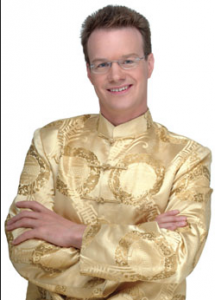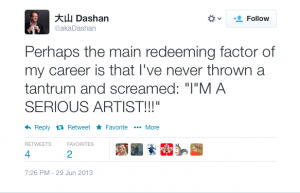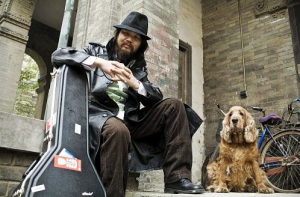In Praise of…KTV
Posted: 10/5/2014 11:00 amThose of us who came to China in the years building up to the Beijing Olympics are watching the things that made China China disappear. These include internet bars, street barbecue (or at least its credibility as a safe option), and now karaoke bars, better known as KTVs.
KTVs are expensive to run and, on top of the fact that karaoke is a relatively expensive pastime, there are several reasons why a night at a KTV might be a hard sell. There are the tinny soundtracks, the over-priced drinks, the low-budget videos, and of course the non-professional singers. Karaoke is not as individualized, free, or unpredictable as open mic, but the popularity of karaoke represents some dizzying societal changes, most of which are positive.
Why lyrics matter and why that matters
The karaoke machine was one of two Japanese inventions of the 1970s that revolutionised the way we enjoy music. Whereas the walkman, which was first marketed by Sony in 1979, was developed by engineer Nobutoshi Kihara at the request of then-Sony co-chairman Masaru Ibuka, the karaoke machine was an inadvertent success after being invented by musician Daisuke Inoue to give singers the chance to perform without a backing band.
In the 80s and 90s it spread throughout the world and became one of the most popular social activities in Greater China. This rise coincided with the glittering career of Teresa Teng, the Taiwanese pop star who was said to rule China by night while Deng Xiaoping ruled it by day.
Her song “The Moon Represents My Heart” – one of the biggest Mandopop hits of the 1980s, in spite of the best efforts of the Beijing establishment – reveals an exciting phenomenon, as Evan Osnos points out in “The Age of Ambition”. That the song is about “me” rather than “we” struck a particular chord with the generation that was young at this time. As Osnos writes:
There was something different about…the young men and women born in the seventies. You could hear it in their speech, their comfort with saying “I” and “me,” where their parents would have used the plural: “our work unit” and “our family.” (Older Chinese took to calling her cohort the wo yi dai – the “Me Generation.”)
“My Heart Will Go On” by Celine Dion, another KTV staple, is about the forbidden love between Leonardo Di Caprio’s vagrant and Kate Winslet’s heiress in “Titanic”. The song and the film proved a pirated video sensation in a country where, of all the social upheavals that have occured in recent decades, the ability to choose ones own partner is just about the biggest.
In the 1970s, as Osnos points out, rural men wanted to be seen as 老实 (honest and reliable) rather than 风流 (wild and adventurous). By the end of the century, the opposite was the case. A good representation of this shift is the songs that owe a huge amount of their hit status to KTV.
For a song to be a KTV hit, the lyrics have to be comprehensible and singable, something that isn’t universal in the world of popular music. The lyrics to “Louie” by The Kingsmen, for example, are so indecipherable that they prompted an FBI investigation in the early 1960s into their allegedly obscene content. A comprehensible lyric is ideological in that it expresses something as opposed to nothing.
So what if love songs dominate?
A look at some lists of the top 10 most popular KTV songs reveals that, to nobody’s surprise, love ballads dominate. However, dismissing all popular love ballads as syrupy trash is as lazy as assuming that all underground music is good. My experience of underground music venues is, it is amazing the amount of pseudo-profound drivel you can get away with singing as long as you’re wearing a hat.
Before the 1980s, love songs were as unacceptable in mainland China as flowery dresses. Since then, this Japanese invention has helped numerous foreign songs come into their own in China and their lyrics have given the public the chance to see that people everywhere fall in and out of love and have similar highs, lows and dilemmas. Literature, as has been argued by historian Lynn Hunt, philosopher Martha Nussbaum, and psychologists Raymond Marr and Keith Oatley, has served to expand empathy and a force towards humanitarian progress.
On my last night in Hunan in 2009 I went to a communal KTV which was just one barroom with one microphone and one screen (which is what the original Japanese karaoke houses were like before the private room format became popular in Taiwan in the 1980s) and as soon as I sat down, a drunk Chinese man came uninvited to my table and put his arm around me. When I said (in Chinese), “Do you mind? I am here to be with the people I came with,” he responded (in English) “No no no no no no…I’m your friend.”
Looking back at this incident, two things strike me. 1. I didn’t have the courage to rip his glasses off and throw them across the floor. 2. His xenophilia, though cloying, was preferable to its opposite. A look at the contents of this double CD of songs that were popular during the 1960s, including 《地道战》 which glorifies making war against an unnamed “invader” and “Keep Mao’s Words in Your Heart”, indicates that in the pre-KTV era, our barroom encounter would have been spikier.

Daisuke Inoue, who never patented his invention and only found out about its international popularity upon seeing it mentioned in Time Magazine in 1999. Image courtesy of Google
Good harmless fun
Daisuke Inoue may not be Nobel Peace Prize material, but he was surely damned with faint praise when, upon being awarded the Ig Nobel Prize in 2004, he was said to have invented “an entirely new way for people to learn to tolerate each other.” Karaoke is at the very worst good, harmless fun, which is how most drinking games could be described if they were any good or fun.
No less a figure than Johnny Cash understood how singing seems to help a troubled soul. Singing karaoke is more social than other pastimes such as playing computer games, healthier than hunching over a computer, and less sinful than other social activities such as drinking and taking drugs.
As for KTV girls and the world of vice that is associated with the activity, pimping services also target hotels and nightclubs. This doesn’t mean that dancing and sleeping are innately shameful. If people who frequent KTVs are supposed to be getting a lot of sex, then life is seriously passing me by.
















In Praise of…The Laobaixing
Posted: 04/30/2014 11:00 amIf you live in China, you see these people every day. You see them getting onto the subway before other passengers have had the chance to get off. You see them standing outside their stores clapping to attract attention, even when they’re being drowned out by happy hardcore music. You see them dressing up flamboyantly, convinced that they are fashionistas, even when their hairstyle alone is enough to prevent them from ever being allowed into Milan. You hear them shouting “hello” when they see a foreigner, which some consider to be the height of sophistication.
How is this group of people best defined? The workers? Too communistic. The great unwashed? Not communistic enough. The salt of the earth? We’re here to praise them, not worship them. Let’s settle for “The Laobaixing”.
Literally translated as “The Old 100 Names,” the meaning of Laobaixing is richer and more fluid than any possible English translation. In her book “Dreaming in Chinese,” the closest linguist Deborah Fallows got to finding a definition she was happy with was: “All those who are making the staggering adjustments to survive.”
It appears that China’s government, whose officials are by definition not Laobaixing, has little faith in the Laobaixing’s ability to behave well. Last year Shenzhen rolled out the nation’s first civility laws to crack down on spitting, littering and other uncouth behaviour. Vice Premier Wang Yang called for his compatriots to have a sense of ambassadorial responsibility when abroad as they have gained a reputation for the kind of behaviour that got Chinese tourists barred from one chic hotel in Paris.
Both Wang Yang and the Shenzhen government were probably doing the right thing. Clearly this behaviour is not acceptable and needs to improve, but since we are in the habit of praising things, let’s look at it from a couple of angles.
What is “rudeness” anyway?
In one of the most cringe-worthy China expat-related moments in the history of the internet, an American declares that “Chinese people are rude” while verbally abusing a Chinese girl who is in no position to fight back. This goes to show that the term “rude” is so vague and its definition so subjective that good users of the English language tend not to say it too often, like the words “weird” or “random”.
Let us roughly divide the definition of rude between “obnoxious” and “uncultured.” Obnoxiousness is intentional, for example making a passive aggressive remark at a dinner party. Being uncultured causes people to do inappropriate things because they don’t know any better. The latter is what has been giving Chinese tourists a bad name and what the Shenzhen government is targeting.
One day in Hunan Province in mid-November 2008, I was on my way to lunch when somebody walking in the opposite direction spotted me under my umbrella and said: “Hello.” After walking another 20 yards or so, the stranger turned around and started sprinting towards me. His first words into the back of my ear were: “Hey, I want to make a friend with you. I want you to teach me English.”
Not knowing what to say, I invited him along to lunch where he explained that he was a 20 year-old I.T. student named Benny who “likes foreigners”. He already had two foreign friends and wanted more.
I barely made eye contact for the whole lunch, not because I was annoyed, just because I was sad to know that I could never teach this guy how to talk to anyone. Friendships tend to be based on some form of usefulness, whether we admit it or not. W.H Auden was right, as always, when he said: “Almost all of our relationships begin and most of them continue as forms of mutual exploitation, a mental or physical barter, to be terminated when one or both parties run out of goods.” Benny approached me because he wanted something – a free English teacher – and he didn’t get it because his approach lacked sophistication.
When I describe Benny’s actions to Chinese people who are sympathetic with the idea that they were inappropriate, they usually explain them by saying: “他的文化水平不高” (His standard of culture is not high). But he was not obnoxious. It’s unlikely he is capable of interpreting a passive aggressive remark at a dinner party, let alone making one.
Why being “cultured” is important but overrated
There is value in being cultured, just as there is value in being handsome, athletic or witty. Appreciating the arts does not make us morally better, but it makes us more thoughtful and complex.
Benny had obviously never given serious thought to the Lu Xun quote that says “The problem with our relations with foreigners is that we never look at them as equals, we always either look up to them as emperors or look down on them as animals.” If he had, he would have understood what is wrong with throwing himself at every foreign-looking person he sees.
To become more cultured, members of the Laobaixing need the chance to embrace more difficult works of art, not because Oliver Stone is as awesome as he thinks he is, but because public discourse needs to be more nuanced. As China gets ready to ascend to the status of largest economy in the world, it faces a set of internal problems that seem intractable and needs a sophisticated citizenry to have a chance of overcoming these problems.
However, it is very dangerous to suggest that being uncultured somehow makes somebody inferior. To Hitler, whose program of arts subsidy was one of the largest in the history of civilisation, what was good about art was that it “raised (people) above the petty cares of the moment and shows them that, after all, their individual woes are not of such great importance.” John Carey, author of “What Good Are the Arts?” believes that Hitler’s veneration of the arts wasn’t just a side issue, but the force that shaped and nourished his inhumanity.
Members of the Laobaixing should by all means learn their Shakespeare and their Mozart. But if somebody is an immoral person to begin with, the chances that doing this will make them any less so are low.
Only as messed up as it is
In “Chinese Lessons,” John Pomfret recalls hearing first-hand accounts of the Cultural Revolution from his Chinese friends. In one case, a boy was forced to witness the murder of his own father and help carry the severed remains through the streets, accompanied by his brothers. This boy is now a middle-aged man with a successful career.
Well within living memory, China went through what JG Ballard described as “the brain death of a nation,” in which many of the things that defined China as a great civilization were deliberately desecrated. And it’s not as if everything was rosy before then.
Literary translator Brendan O’Kane said in his final interview before leaving Beijing last year that he appreciated that, considering what China had been through over the past century, credit is due for things being only as messed up as they are. So next time an uncultured person shouts “hello” at you, just remember that it’s not so long since much worse things were being shouted at foreigners.